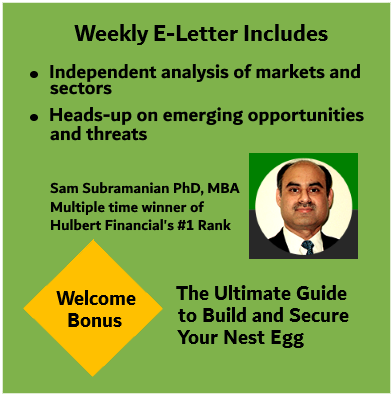Exchange traded funds or ETFs are investment vehicles that combine some investment attributes of mutual funds with those of stocks. Like mutual funds, exchange traded funds are a basket of securities generally designed to track an index. The index may be a stock, sector, or bond index. Some exchange traded funds track commodity prices as well. Like stocks, exchange traded funds trade on a stock exchange.
Issuers of Exchange Traded Funds
Exchange traded funds are issued by leading financial institutions under various names. Examples include:
| Sponsor or Issuer | Exchange Traded Fund Family |
| Barclays Global Investors | iShares |
| PowerShares Capital * | PowerShares |
| ProShare Advisors | ProShares |
| State Street Bank & Trust | SPDR and streetTRACKS |
| Vanguard Group | Vanguard |
Merrill Lynch sponsors exchange traded entities called HOLDRs. HOLDRs or Holding Company Depositary Receipts represent beneficial ownership of a specified group of stocks.
Types and Examples of Exchange Traded Funds
Like mutual funds, a wide array of exchange traded funds is available. Exchange traded funds are commonly classified by asset class, investment style, and market capitalization of securities invested.
- Asset Class: Equities, Fixed Income, Commodities, or Hybrid
- Investment Style: Growth, Value, or Blend (or Core)
- Market Cap: Large Cap, Mid Cap, Small Cap, or Multi Cap
Exchange traded funds may also be classified based on the sector or industry group the assets are invested in.
Health Care SPDR that trades under ticker symbol XLV is an example of a sector exchange traded fund. iShares NASDAQ Biotechnology that trades under ticker symbol IBB is an example of an industry group-focused exchange traded fund.
Additionally, exchange traded funds can also be classified based on the country or geographic region the assets are invested in.
Trading Flexibility of Exchange Traded Funds
Exchange traded funds trade like stocks and offer trading flexibility. Exchange traded funds are priced continuously during trading hours and can be traded at intraday market prices. Exchange traded funds can also be traded using stop or limit orders. Additionally, exchange traded funds can be purchased using margin and sold short.
Costs Involved in ETF Investing
There are three types of costs involved in the trading exchange traded funds:
- Brokerage commissions: Investors typically incur brokerage commissions to buy or sell exchange traded funds.
- Bid-Ask spread: As with stocks, the ask price represents the lowest price an investor can buy shares of the exchange traded fund at. The bid price represents the highest price an investor can realize when selling shares of the exchange traded fund.
The bid-ask spread is the amount by which the ask price exceeds the bid price. The liquidity of the exchange traded fund is a key factor that determines the magnitude of the bid-ask spread. The higher the liquidity of the exchange traded fund, the lower the bid-ask spread.
- Administrative expenses: The sponsor or the issuing company usually charges a fee for managing the exchange traded fund. The annual expense ratio for exchange traded funds is generally lower those of other investment products.
Additionally, investors selling exchange traded fund shares in non-qualified accounts may realize capital gains or losses.
Suitability of Exchange Traded Funds
In assessing the suitability of exchange traded funds, prudent investors will want to look beyond the expense ratio and compare the total cost of owning an exchange traded fund with the total cost of owning a no load mutual fund.
In certain cases, brokerage commissions and the bid-ask spread may more than offset the exchange traded fund’s advantage of a lower expense ratio. In such cases, no load mutual funds may be a less expensive option.
Generally speaking, exchange traded funds are attractive vehicles for investors who invest large sums of money and trade infrequently. No load mutual funds may be a better option for investors who invest relatively small sums of money or investors who dollar cost average.
AlphaProfit ETF Newsletter and ETF Recommendations
AlphaProfit Sector Investors’ Newsletter is the premier resource for sector investors. The Newsletter offers exchange traded fund recommendations. The Newsletter and its model portfolios have frequently been ranked #1 by Hulbert Financial Digest.
About AlphaProfit MoneyMatters
AlphaProfit MoneyMatters is a free e-letter distributed to registered users of AlphaProfit’s website. The e-letter analyzes the economy, markets, and sectors and provides money-making insights on stocks, exchange-traded funds, and mutual funds. AlphaProfit MoneyMatters is edited by Dr. Sam Subramanian acclaimed for his financial acumen and analytical skills. Sign Up for ETF Newsletter.

 Sick buying high & selling low? Fed up of the fees you pay? Tired researching investments? End your financial pain now. You have the opportunity to
Sick buying high & selling low? Fed up of the fees you pay? Tired researching investments? End your financial pain now. You have the opportunity to 

 DEC. 1993 to DEC. 2023
DEC. 1993 to DEC. 2023





